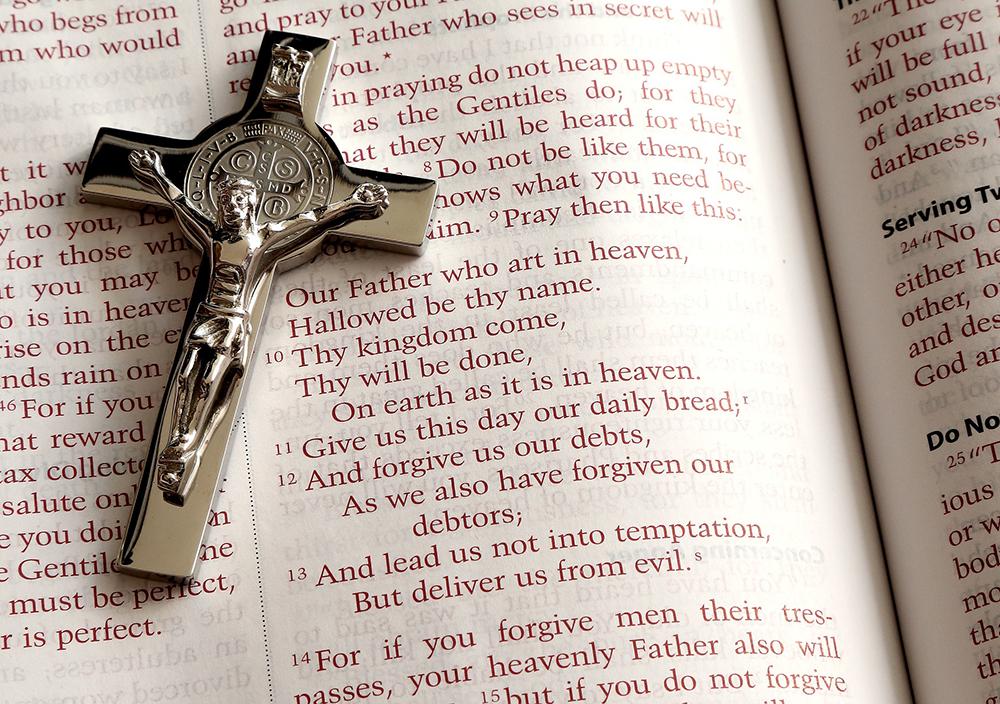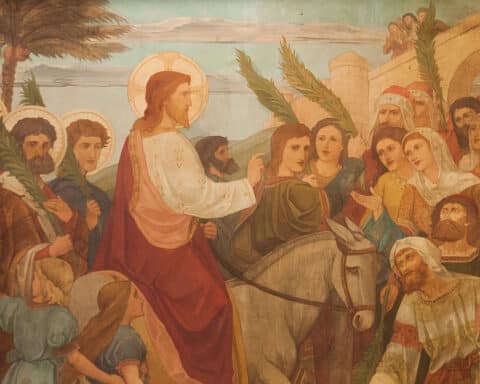The Gospel of Luke doesn’t begin with Jesus. It begins with the birth of John the Baptist, an event nearly as stunning, almost as impossible as the Incarnation of Jesus Christ himself.
Elizabeth and Zechariah are righteous and barren (Lk 1:6-7). Like Abraham and Sarah, they should not be able to conceive a child. They are beyond the age at which children are born to couples.
One can only imagine the pain that both Elizabeth and Zechariah experienced. The Psalmist promises that the one who fears the Lord will have many descendants (Ps 112:1-2). How often they must have cried out to God together, asking for descendants. Praying for a son.
God has something else in store for Elizabeth and Zechariah. Performing his priestly duty in the Temple, Zechariah is visited by the angel Gabriel.
| Solemnity of the Nativity of St. John the Baptist – June 24, 2018 |
|---|
|
IS 49:1-6
PS 139:1B-3, 13-14AB, 14C-15
ACTS 13:22-26
LK 1:57-66, 80
|
Gabriel not only promises that Elizabeth and Zechariah will have a child. This son will be a source of “joy and gladness” (Lk 1:14), he will be “filled with the Holy Spirit” (Lk 1:15), and “he will turn many of the children of Israel to the Lord their God” (Lk 1:16).
In the Gospel of Luke, “joy and gladness” is evidence that the moment of salvation is afoot. John is chosen by God to be a prophet, to turn Israel to God. To prepare Israel for the coming of the Lord.
Zechariah cannot believe. He cannot “know” this truth, perceive it with his own eyes. Who could? And he is thus made silent, waiting for the birth of John.
In the meantime, more wondrous events unfold in Nazareth. Gabriel appears to Mary, inviting her into an even more wondrous birth. Mary too wonders how this is possible, since she has not “known” a man (a word pertaining to sexual intimacy).
Zechariah cannot “know” this truth because it cannot be perceived. Mary “knows” the possibility of truth, even if she herself has not been “known.”
Mary and Elizabeth encounter one another, two women pregnant with divine possibility. Jesus and his cousin John greet one another in the womb, joyfully aware of the mysterious salvation happening in hidden Judah.
While Zechariah remains silent, Mary speaks. Her soul magnifies the Lord. She proclaims the mercy that has come to visit her people. The moment of judgment is at hand, the time for divine possibility.
Could Zechariah have heard these wondrous words of Mary? Was it her witness that led him to know the unknowable?
And then, at last, John is born. When Zechariah writes his name upon the tablet, fulfilling the prophecy of the angel Gabriel, he can once again speak. And his first words bless God.
John’s first renewal of Israel begins with his dad, who comes to rejoice in the salvation made present here and now.
Filled with the very Spirit of God, Zechariah now offers his own parallel song to Mary’s. He sees his son for who he is — the prophet of the Most High, the one who comes to announce the presence of light in the world.
On the feast of John’s nativity, we should allow ourselves to be conformed to the prophetic wisdom of Jesus’ cousin. Like John, we are witnesses to the one who witnesses to the love of the Father.
We are witnesses to the joyful resurrection of the beloved Son.
And like the last prophet of Israel, St. John the Baptist, we must announce to the world the good news: The Most High is here.
We are not him.
Come with us. And meet the source of joy and gladness.





